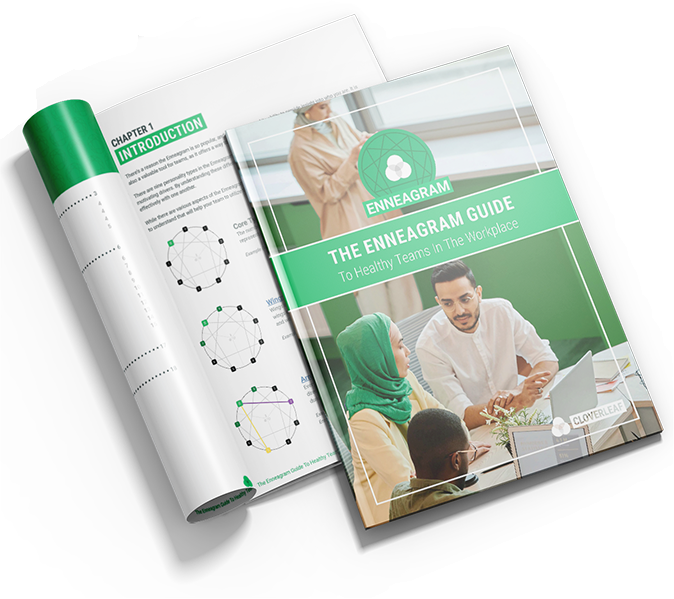Hard times are unique opportunities to deepen relationships. But we may not know how to get a deep and vulnerable conversation started, especially in a work environment.
Using Enneagram group discussion questions can help individuals and team members learn more about one another. If you or a coworker do not know your Enneagram type, take our free assessment to help guide your conversation.
In all meaningful discussions, there are two roles – the listener and the processor. One person should be the processor for all three questions, while all others practice as listeners.
The listener’s main role is to…listen! Listening can be difficult. When someone shares their experience, it’s normal to want to respond quickly with something like, “Me too. I was thinking….”
However, this attempt to relate quickly can unintentionally prohibit the other person’s ability to continue processing. The listener must resist the urge and focus on listening. The listener can ask clarifying questions to help keep all focus on the processor, giving them safe space and time to think out loud.
The processor’s main role is to…process! The processor should try to elaborate and avoid giving one-sentence answers. Be curious about yourself, honest about difficult insights, and hopeful about how discussing the Enneagram can help you discover your unique work style and motivations.
Below are three Enneagram group discussion questions that can help you use the Enneagram at work or with friends to increase personal growth and development.
Note: Before starting, the listener will need to know the processor’s enneagram type.
Question #1: Listener asks Processor: “As an Enneagram Type ____, your core fear is likely ____. In what ways do you think that can affect you?”
For reference, below are the core fears of each Enneagram Type.
Enneagram 1: Being corrupt, losing a sense of integrity; being wrong or lazy
Enneagram 2: Being unloved or unwanted
Enneagram 3: Being worthless or undesirable apart from achievements; being disrespected
Enneagram 4: Not being unique and being seen as worthless for this
Enneagram 5: Being helpless or incompetent; not being knowledgeable
Enneagram 6: Not have direction or support; not be able to keep going on their own; uncertainty
Enneagram 7: Needs and wants are not fulfilled by others; pain; deprivation
Enneagram 8: Being limited or controlled
Enneagram 9: Being disconnected from others, being confronted
Do you need help navigating your work relationships or developing a work culture where people can thrive? Download the free Enneagram Guide To Healthy Teams In The Workplace.

The Enneagram Guide To Healthy Teams
Question #2: The Listener asks the Processor: “As an Enneagram Type ____, you’re likely motivated by ____. What are two things you can do this week that motivate you?”
For reference, below are the core motivations of each Enneagram Type.
Enneagram 1: Solving problems and bringing order and organization to chaos
Enneagram 2: Helping others
Enneagram 3: Optimism and achieving goals
Enneagram 4: Creativity, finding deeper meaning, and experiencing authentic feelings
Enneagram 5: Learning and having a deep knowledge of topics
Enneagram 6: Creating and finding security, having a duty or responsibility to complete something
Enneagram 7: Being happy and contributing to the world to relieve suffering
Enneagram 8: Being self-reliant and fighting for just causes
Enneagram 9: Keeping the peace and connecting others
Question #3: The listener asks the Processor: “As a friend (or coworker), what is the best way I can help you with this?”
Whether you are a new manager hoping to build trust or a coworker who wants to understand a teammate better, asking these three questions can lead to powerful learning about one another.
To further explore how to improve workplace communication, check out the post, 4 Effective Enneagram Activities To Help Develop Your Team.
👀 See how Cloverleaf turns leading personality and strength-based assessments into actionable coaching inside your enterprise organization.






